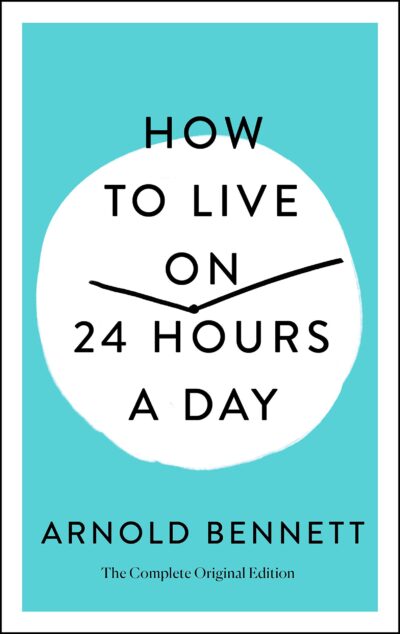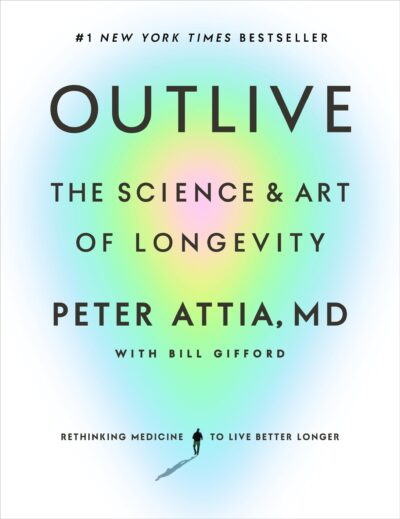68 Results with the "Self-help" genre
Adventure Fiction (1164)
Biography (435)
Business & Finance (1)
Children's Literature (124)
Comics (6)
Culture (51)
Drama (123)
Dystopian (29)
Fable (86)
Fantasy (1132)
Fantasy (203)
Fiction (1010)
Finance (1)
Gothic Fiction (12)
Historical Fiction (615)
History (122)
Horror (56)
Lifestyle (36)
Literary (404)
Literary Fiction (207)
Memoir (113)
Mystery (422)
Non-fiction (87)
Novel (549)
Paranormal Fiction (96)
Philosophical (182)
Philosophy (45)
Poetry (249)
Political Fiction (14)
Politics (42)
Practical (32)
Psychological (4)
Psychological Thriller (108)
Relationship (6)
Romance Novel (716)
Romantic Melodrama (14)
Satire (91)
Science (46)
Science Fiction (345)
Society (65)
Society (2)
Spiritual Growth (1)
story (2)
Thriller (704)
True Crime (56)
view (11)
Women's Fiction (2)
Young Adult (233)
-
Chapter
Prologue: Facing Trauma
 Prologue: Facing Trauma Trauma can touch anyone, regardless of their circumstances or environment. It’s not limited to soldiers returning from war or those living in conflict zones like Syria or the Congo. The reality is that trauma affects our families, friends, and even ourselves. According to research from the Centers for Disease Control and Prevention (CDC), one in five Americans was sexually molested as a child, one in four was beaten by a parent, and one in three couples experiences physical…
Prologue: Facing Trauma Trauma can touch anyone, regardless of their circumstances or environment. It’s not limited to soldiers returning from war or those living in conflict zones like Syria or the Congo. The reality is that trauma affects our families, friends, and even ourselves. According to research from the Centers for Disease Control and Prevention (CDC), one in five Americans was sexually molested as a child, one in four was beaten by a parent, and one in three couples experiences physical…-
360.1 K • Ongoing
-
-
Chapter
Preface to This Edition
 Preface opens with the author responding to the reactions his earlier writing received—some lighthearted, others deeply sincere. While a few accused the tone of his work of being too casual, this was not the critique that stayed with him. What struck him were the letters from earnest readers who firmly disagreed with his view that most people do not pour themselves fully into their work. These readers insisted that their jobs were meaningful and that they gave all they had to their professional roles.…
Preface opens with the author responding to the reactions his earlier writing received—some lighthearted, others deeply sincere. While a few accused the tone of his work of being too casual, this was not the critique that stayed with him. What struck him were the letters from earnest readers who firmly disagreed with his view that most people do not pour themselves fully into their work. These readers insisted that their jobs were meaningful and that they gave all they had to their professional roles.…-
62.8 K • Ongoing
-
-
 Praise for The Body Keeps the Score “This book is a tour de force. Its deeply empathic, insightful, and compassionate perspective promises to further humanize the treatment of trauma victims, dramatically expand their repertoire of self-regulatory healing practices and therapeutic options, and also stimulate greater creative thinking and research on trauma and its effective treatment. The body does keep the score, and Van der Kolk’s ability to demonstrate this through compelling descriptions of the…
Praise for The Body Keeps the Score “This book is a tour de force. Its deeply empathic, insightful, and compassionate perspective promises to further humanize the treatment of trauma victims, dramatically expand their repertoire of self-regulatory healing practices and therapeutic options, and also stimulate greater creative thinking and research on trauma and its effective treatment. The body does keep the score, and Van der Kolk’s ability to demonstrate this through compelling descriptions of the…-
360.1 K • Ongoing
-
-
Chapter
NOTES
 NOTES PROLOGUE 1. V. Felitti, et al. “Relationship of Childhood Abuse and Household Dysfunction to Many of the Leading Causes of Death in Adults: The Adverse Childhood Experiences (ACE) Study.” American Journal of Preventive Medicine 14, no. 4 (1998): 245–58. CHAPTER 1: LESSONS FROM VIETNAM VETERANS 1. A. Kardiner, The Traumatic Neuroses of War (New York: P. Hoeber, 1941). Later I discovered that numerous textbooks on war trauma were published around both the First and Second…
NOTES PROLOGUE 1. V. Felitti, et al. “Relationship of Childhood Abuse and Household Dysfunction to Many of the Leading Causes of Death in Adults: The Adverse Childhood Experiences (ACE) Study.” American Journal of Preventive Medicine 14, no. 4 (1998): 245–58. CHAPTER 1: LESSONS FROM VIETNAM VETERANS 1. A. Kardiner, The Traumatic Neuroses of War (New York: P. Hoeber, 1941). Later I discovered that numerous textbooks on war trauma were published around both the First and Second…-
360.1 K • Ongoing
-
-
Chapter
INTRODUCTION
 INTRODUCTION The Smokey Mirror THREE THOUSAND YEARS AGO, THERE WAS A HUMAN just like you and me who lived near a city surrounded by mountains. The human was studying to become a medicine man, to learn the knowledge of his ancestors, but he didn’t completely agree with everything he was learning. In his heart, he felt there must be something more. One day, as he slept in a cave, he dreamed that he saw his own body sleeping. He came out of the cave on the night of a new moon. The sky was clear, and he…
INTRODUCTION The Smokey Mirror THREE THOUSAND YEARS AGO, THERE WAS A HUMAN just like you and me who lived near a city surrounded by mountains. The human was studying to become a medicine man, to learn the knowledge of his ancestors, but he didn’t completely agree with everything he was learning. In his heart, he felt there must be something more. One day, as he slept in a cave, he dreamed that he saw his own body sleeping. He came out of the cave on the night of a new moon. The sky was clear, and he…-
90.9 K • Ongoing
-
-
Chapter
Introduction
 Introduction to the narrator’s journey begins with a recurring dream that captures his feelings of inadequacy and helplessness, where he attempts to catch falling eggs on a city sidewalk—an endeavor that symbolizes his relentless but futile attempts to save patients during his surgical training at Johns Hopkins Hospital. The dream unfolds with him chasing after the eggs, which represent his efforts to intervene and save lives, but despite his best efforts, every egg shatters upon hitting the ground.…
Introduction to the narrator’s journey begins with a recurring dream that captures his feelings of inadequacy and helplessness, where he attempts to catch falling eggs on a city sidewalk—an endeavor that symbolizes his relentless but futile attempts to save patients during his surgical training at Johns Hopkins Hospital. The dream unfolds with him chasing after the eggs, which represent his efforts to intervene and save lives, but despite his best efforts, every egg shatters upon hitting the ground.…-
87.7 K • Ongoing
-
-
Chapter
INDEX
 INDEX The page numbers in this index refer to the printed version of this book. To find the corresponding locations in the text of this digital version, please use the “search” function on your e-reader. Note that not all terms may be searchable. Page numbers in italics refer to illustrations. abandonment, 140, 141, 150, 179, 301, 304, 327, 340, 350 Abilify, 37, 101, 226 ACE (Adverse Childhood Experiences) study, 85, 144–48, 156, 347, 350–51 acetylcholine, 266 acupressure, 264–65,…
INDEX The page numbers in this index refer to the printed version of this book. To find the corresponding locations in the text of this digital version, please use the “search” function on your e-reader. Note that not all terms may be searchable. Page numbers in italics refer to illustrations. abandonment, 140, 141, 150, 179, 301, 304, 327, 340, 350 Abilify, 37, 101, 226 ACE (Adverse Childhood Experiences) study, 85, 144–48, 156, 347, 350–51 acetylcholine, 266 acupressure, 264–65,…-
360.1 K • Ongoing
-
-
Chapter
Heaven on Earth
 Heaven on Earth I WANT YOU TO FORGET EVERYTHING YOU HAVE learned in your whole life. This is the beginning of a new understanding, a new dream. The dream you are living is your creation. It is your perception of reality that you can change at any time. You have the power to create hell, and you have the power to create heaven. Why not dream a different dream? Why not use your mind, your imagination, and your emotions to dream heaven? Just use your imagination and a tremendous thing will happen. Imagine…
Heaven on Earth I WANT YOU TO FORGET EVERYTHING YOU HAVE learned in your whole life. This is the beginning of a new understanding, a new dream. The dream you are living is your creation. It is your perception of reality that you can change at any time. You have the power to create hell, and you have the power to create heaven. Why not dream a different dream? Why not use your mind, your imagination, and your emotions to dream heaven? Just use your imagination and a tremendous thing will happen. Imagine…-
90.9 K • Ongoing
-
-
Chapter
FURTHER READING
 FURTHER READING DEALING WITH TRAUMATIZED CHILDREN Blaustein, Margaret, and Kristine Kinniburgh. Treating Traumatic Stress in Children and Adolescents: How to Foster Resilience through Attachment, Self-Regulation, and Competency. New York: Guilford, 2012.Hughes, Daniel. Building the Bonds of Attachment. New York: Jason Aronson, 2006.Perry, Bruce, and Maia Szalavitz. The Boy Who Was Raised as a Dog: And Other Stories from a Child Psychiatrist’s Notebook. New York: Basic Books, 2006.Terr, Lenore. Too…
FURTHER READING DEALING WITH TRAUMATIZED CHILDREN Blaustein, Margaret, and Kristine Kinniburgh. Treating Traumatic Stress in Children and Adolescents: How to Foster Resilience through Attachment, Self-Regulation, and Competency. New York: Guilford, 2012.Hughes, Daniel. Building the Bonds of Attachment. New York: Jason Aronson, 2006.Perry, Bruce, and Maia Szalavitz. The Boy Who Was Raised as a Dog: And Other Stories from a Child Psychiatrist’s Notebook. New York: Basic Books, 2006.Terr, Lenore. Too…-
360.1 K • Ongoing
-
-
Chapter
EPILOGUE: CHOICES TO BE MADE
 EPILOGUE: CHOICES TO BE MADE We are on the verge of becoming a trauma-conscious society. Almost every day one of my colleagues publishes another report on how trauma disrupts the workings of mind, brain, and body. The ACE study showed how early abuse devastates health and social functioning, while James Heckman won a Nobel Prize for demonstrating the vast savings produced by early intervention in the lives of children from poor and troubled families: more high school graduations, less criminality,…
EPILOGUE: CHOICES TO BE MADE We are on the verge of becoming a trauma-conscious society. Almost every day one of my colleagues publishes another report on how trauma disrupts the workings of mind, brain, and body. The ACE study showed how early abuse devastates health and social functioning, while James Heckman won a Nobel Prize for demonstrating the vast savings produced by early intervention in the lives of children from poor and troubled families: more high school graduations, less criminality,…-
360.1 K • Ongoing
-
- 1 2 … 7 Next
